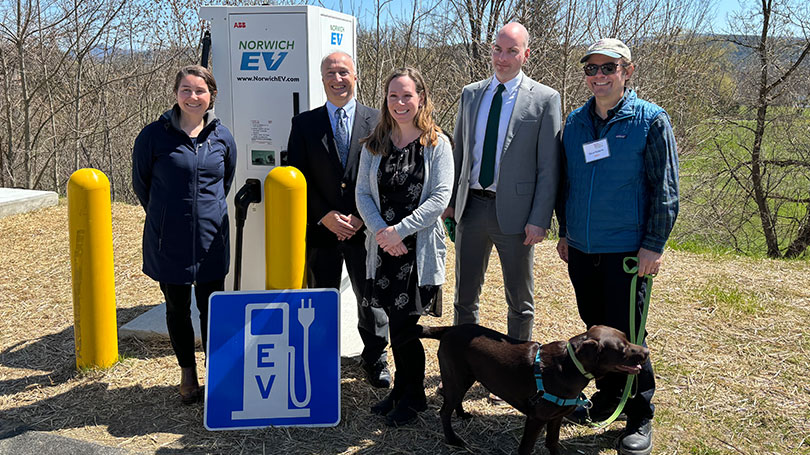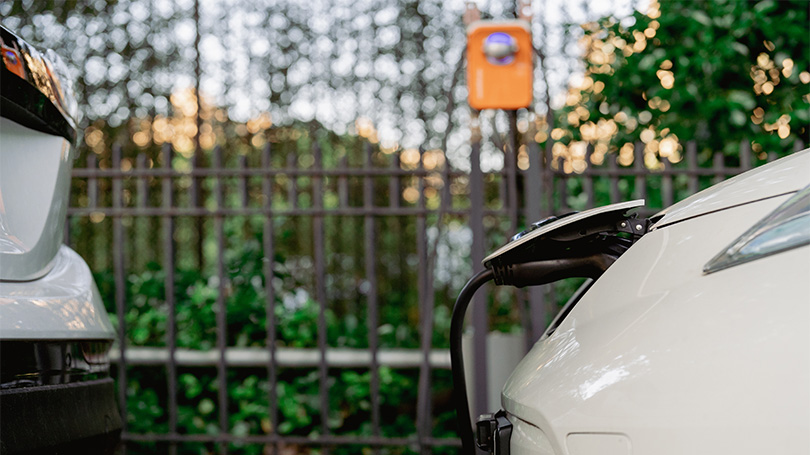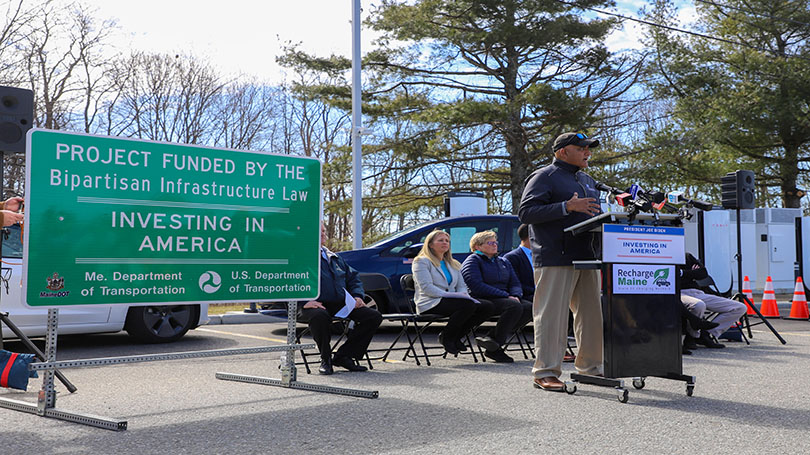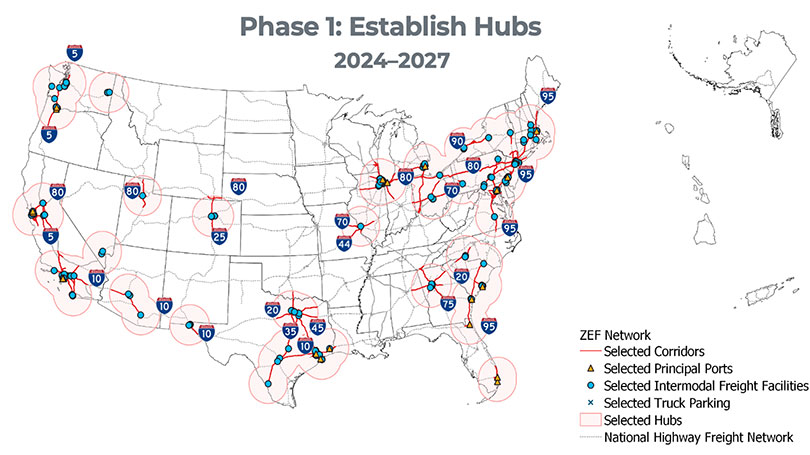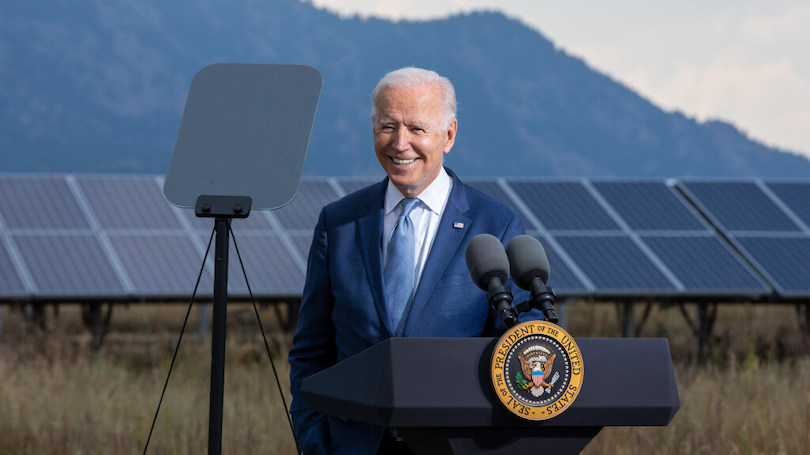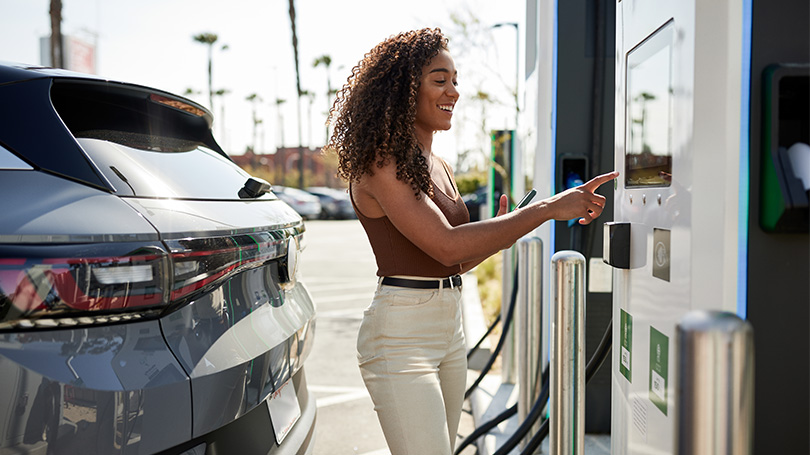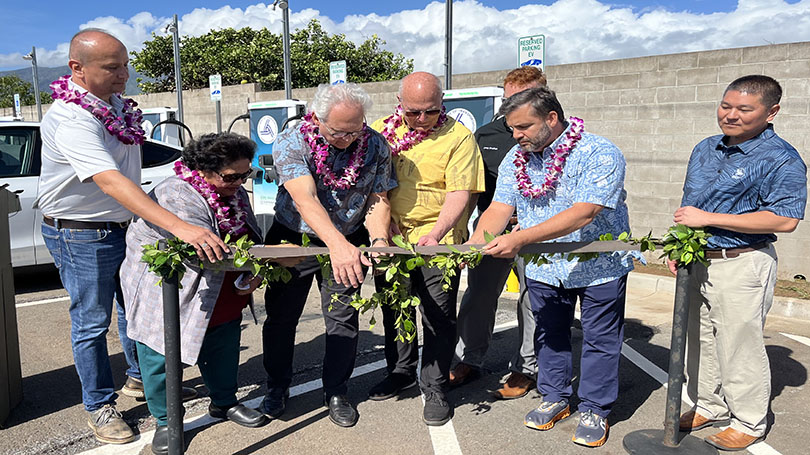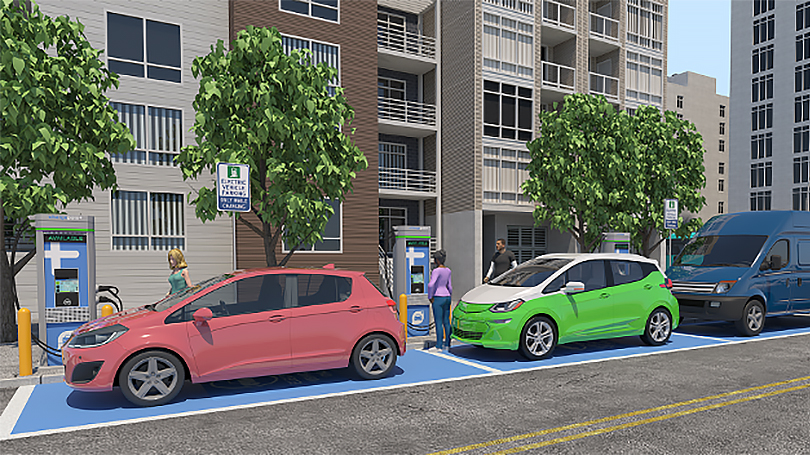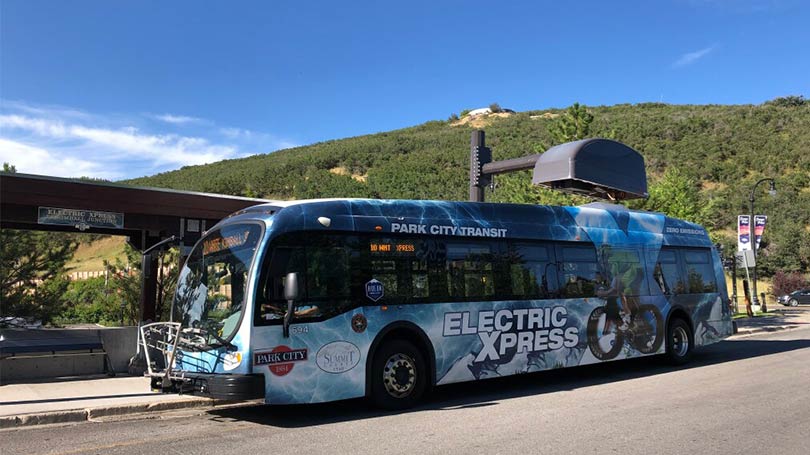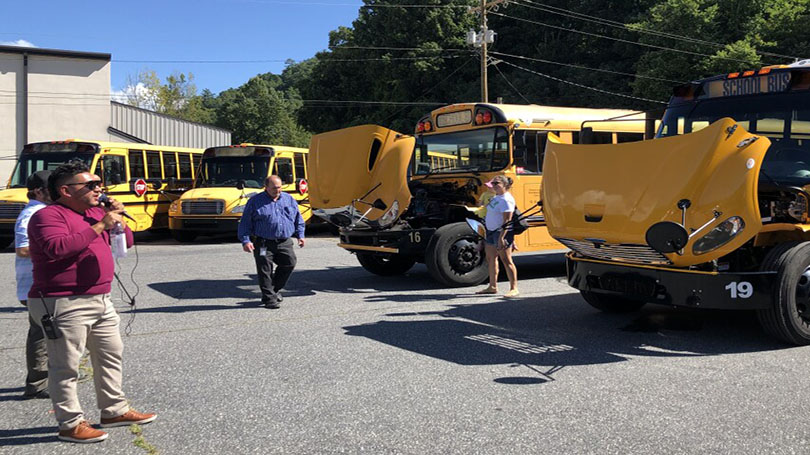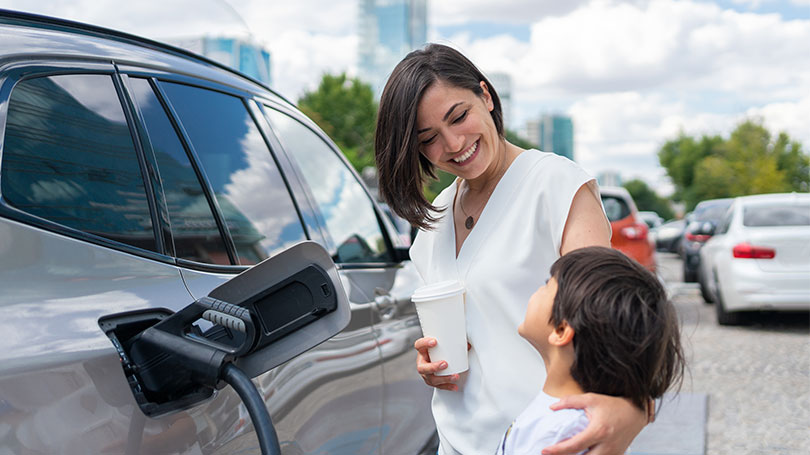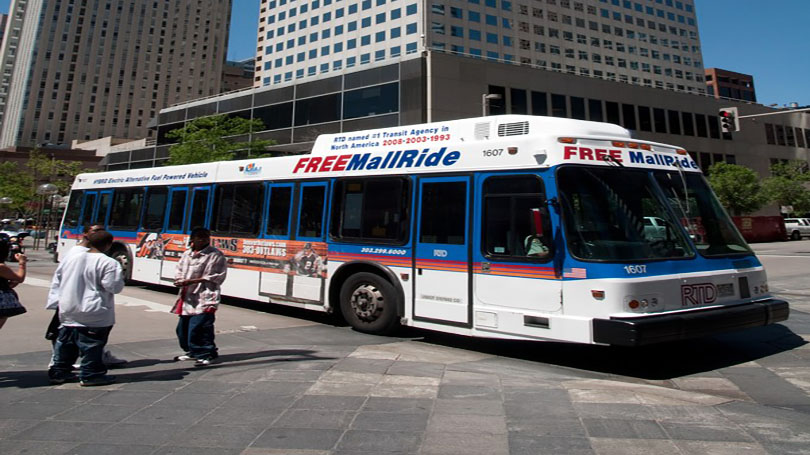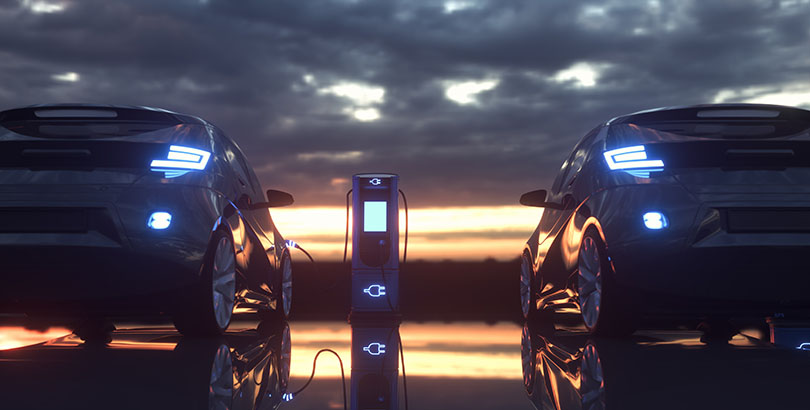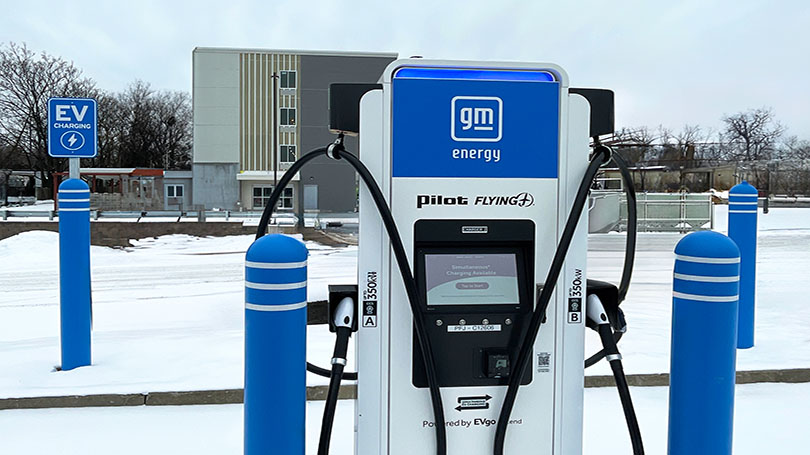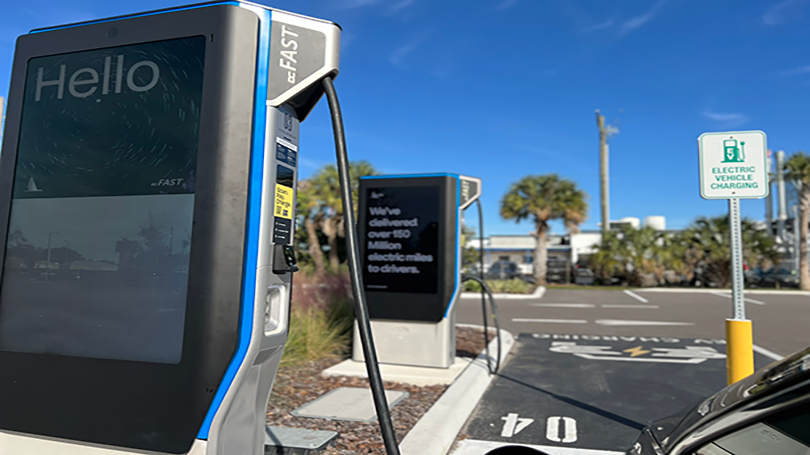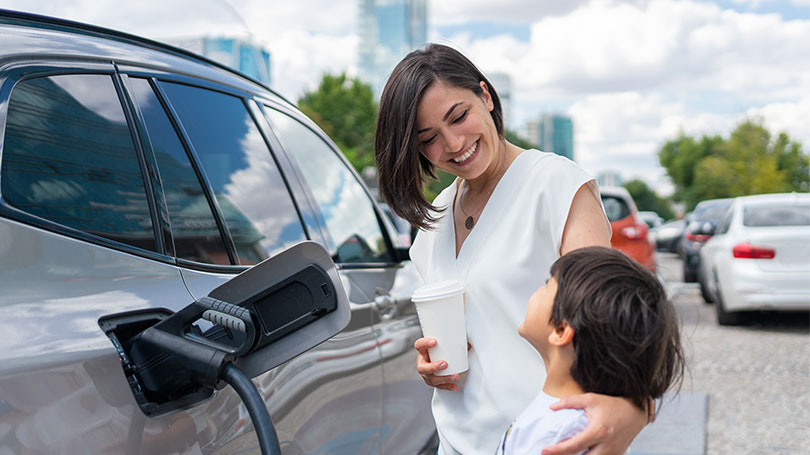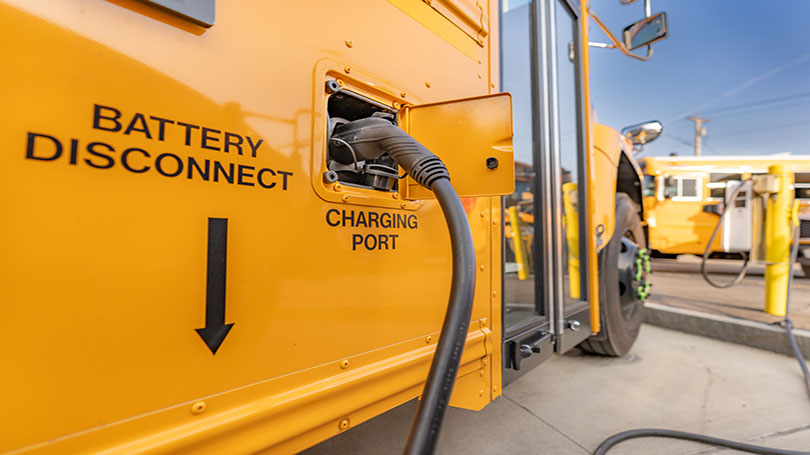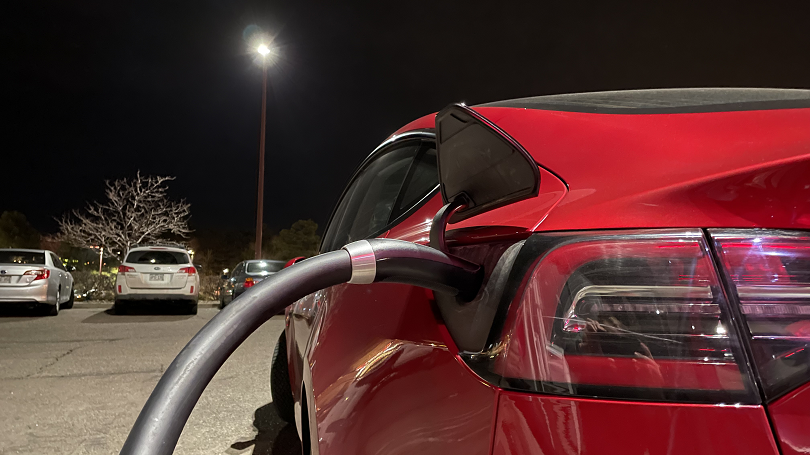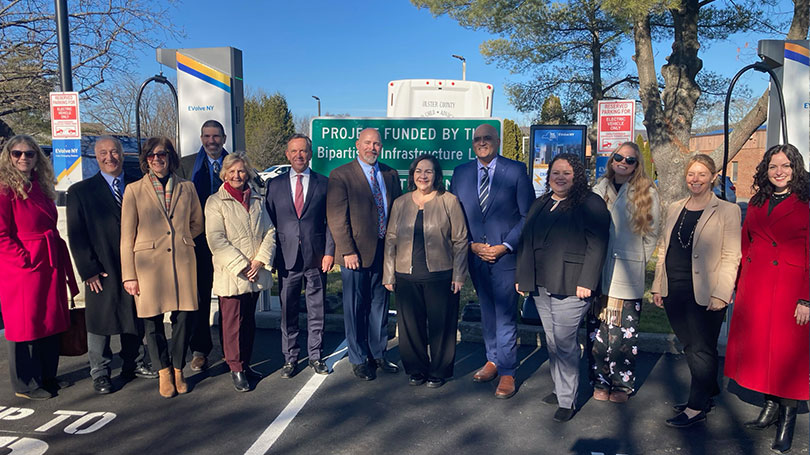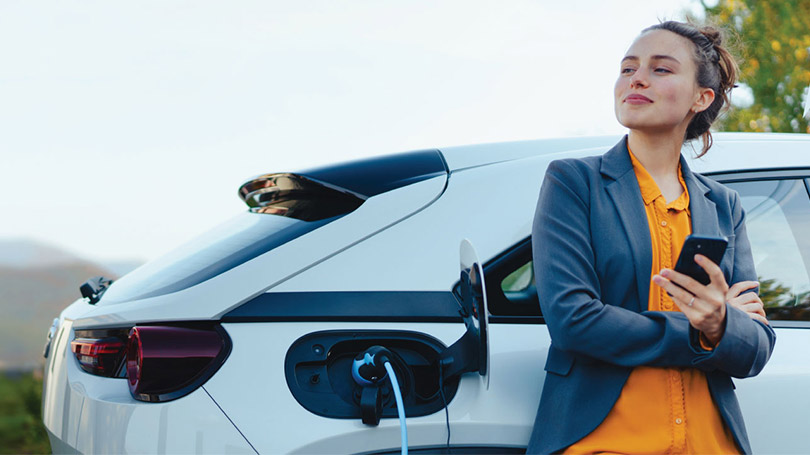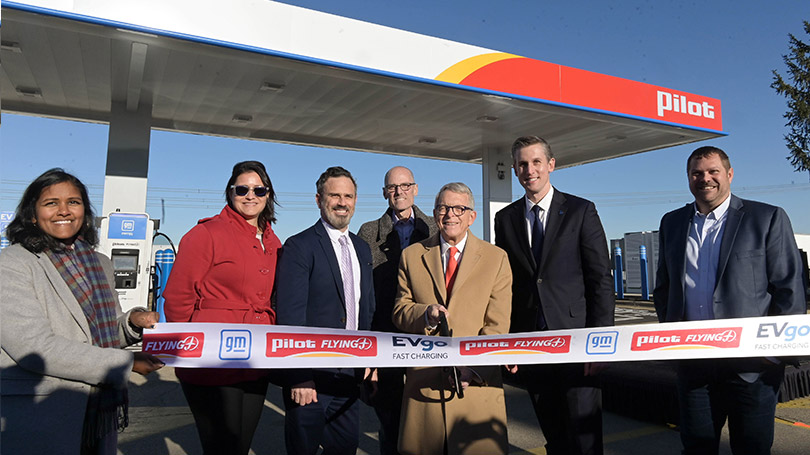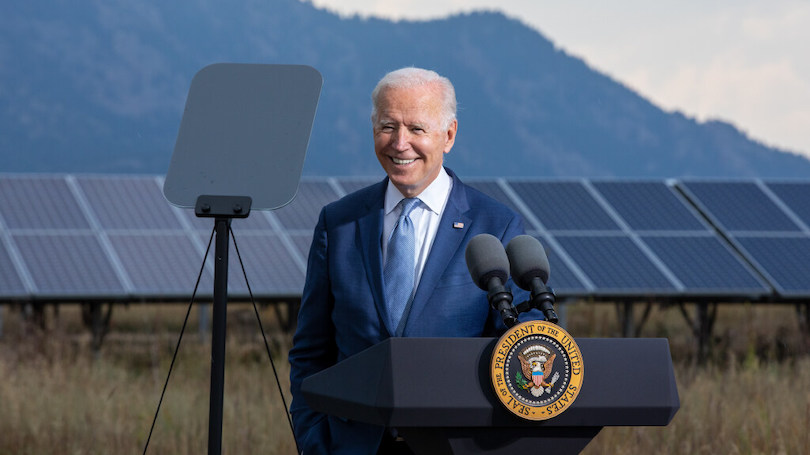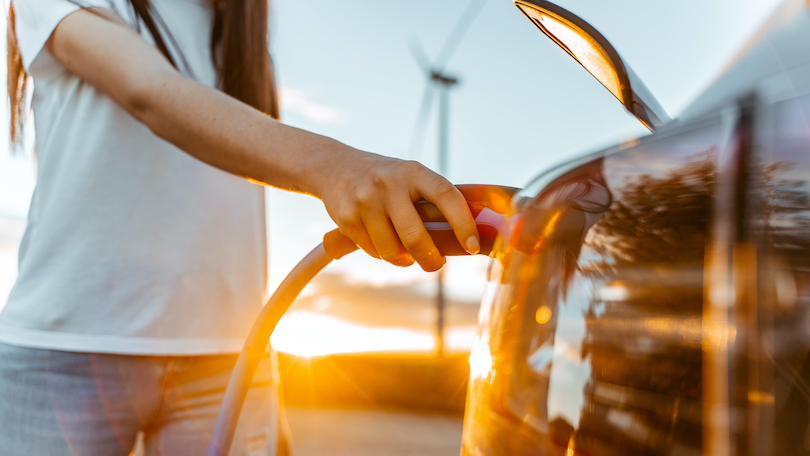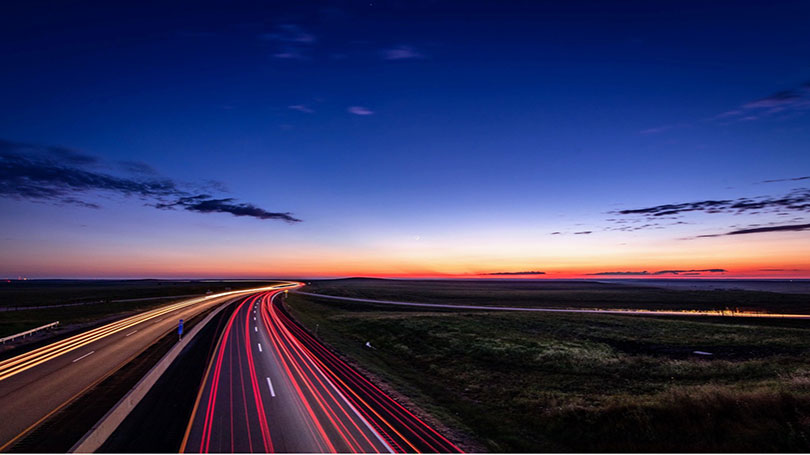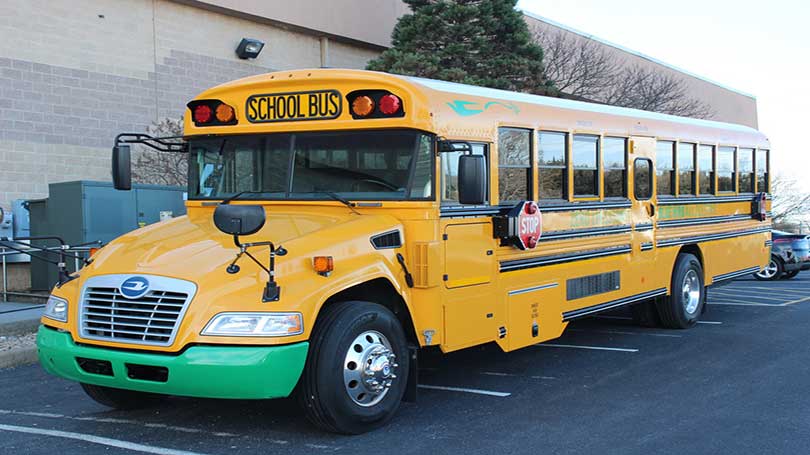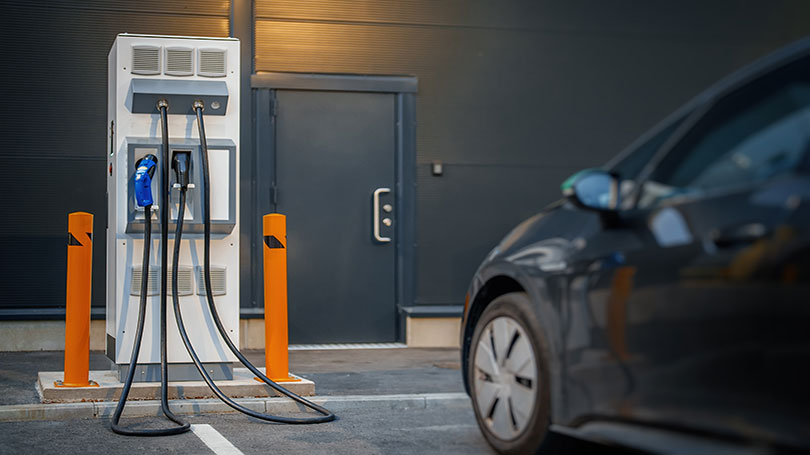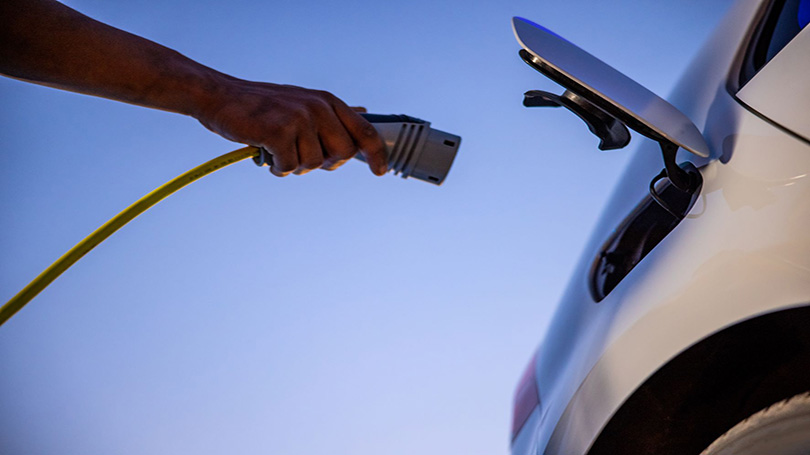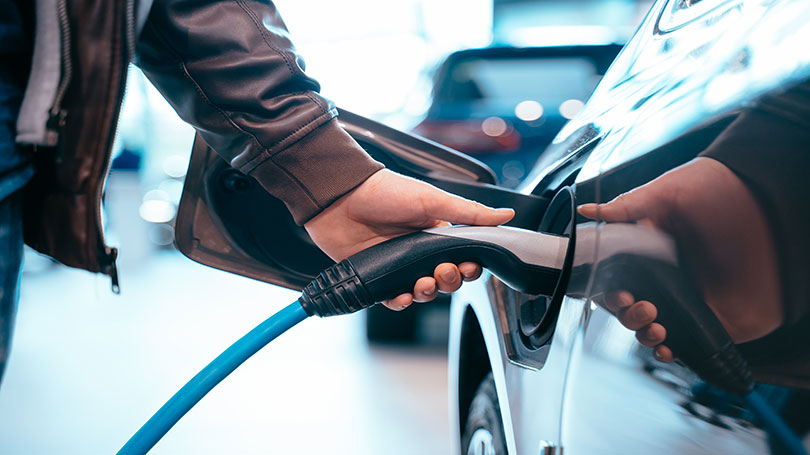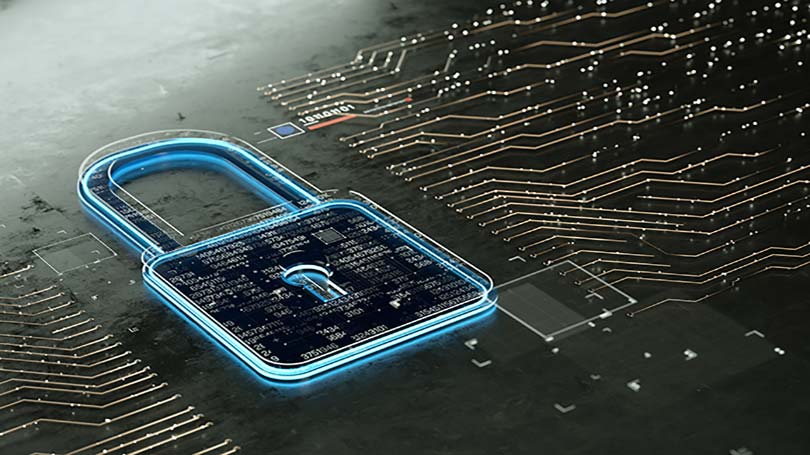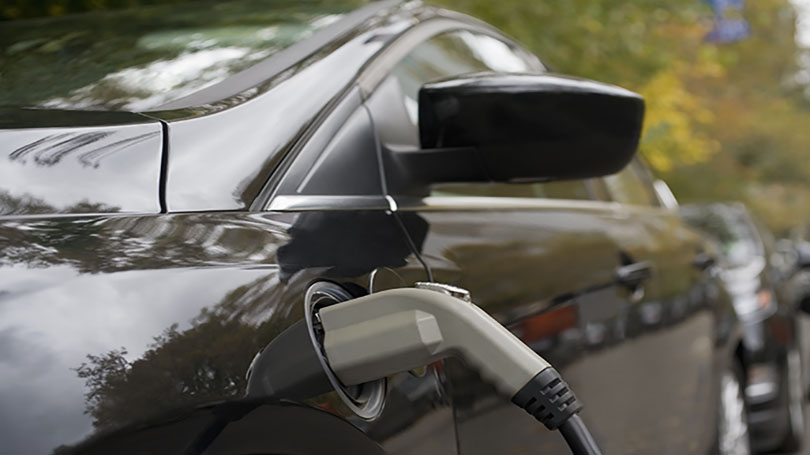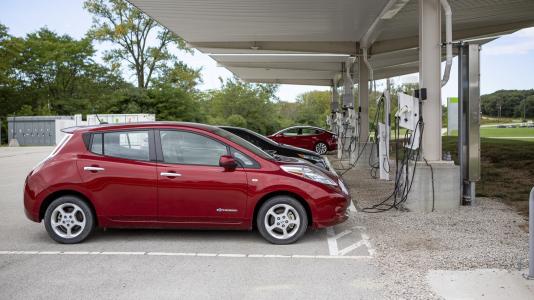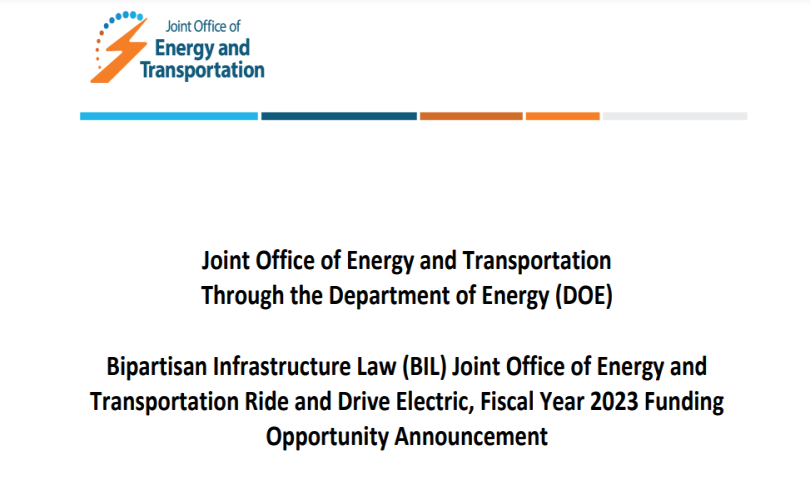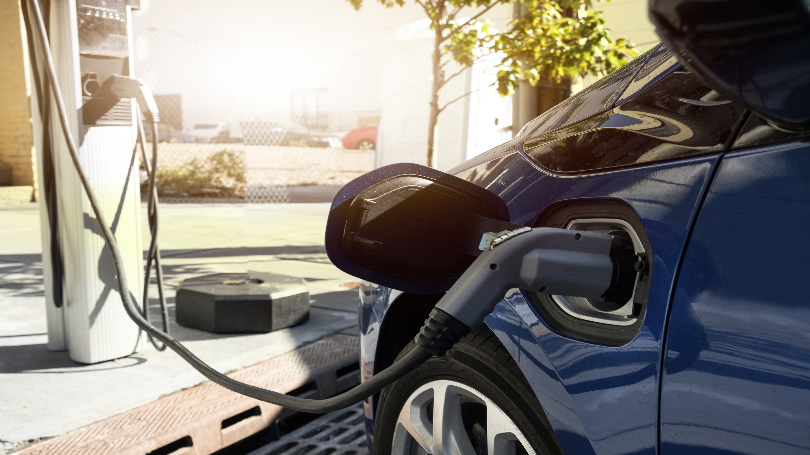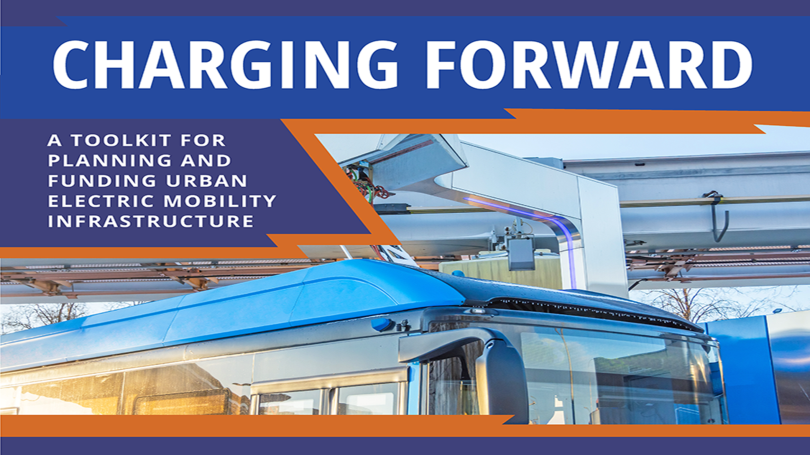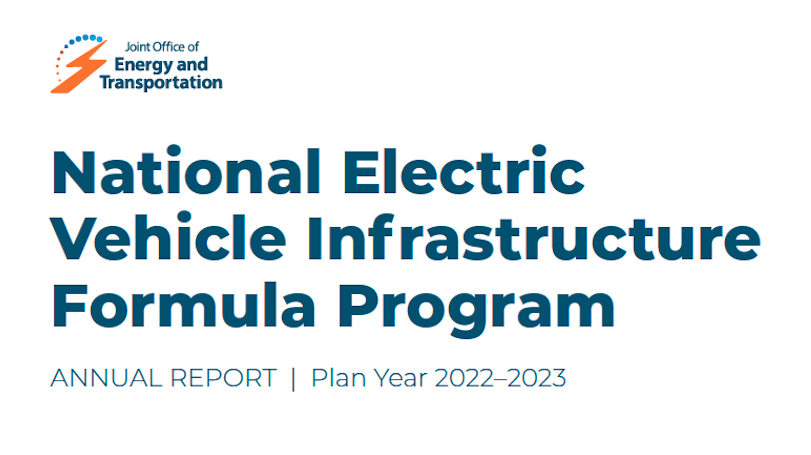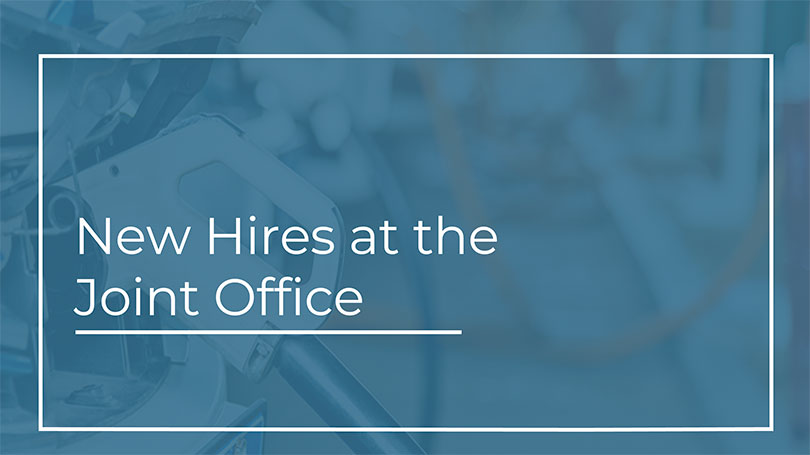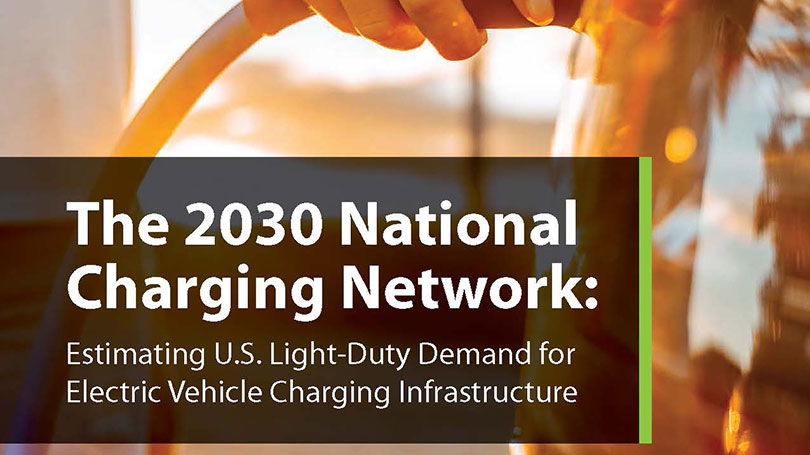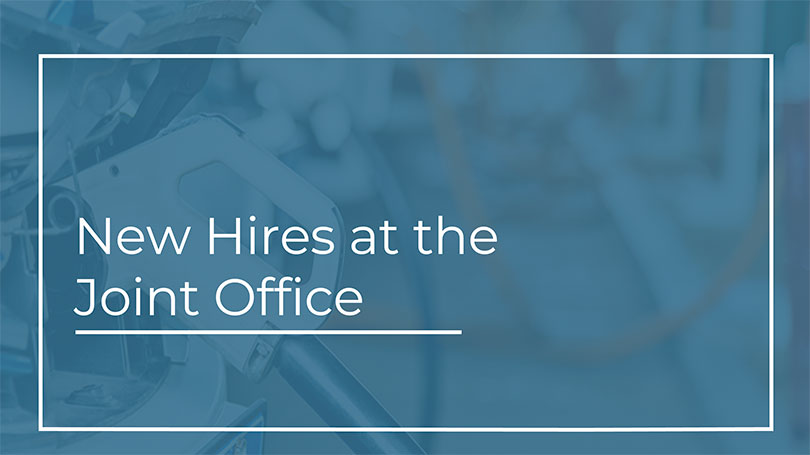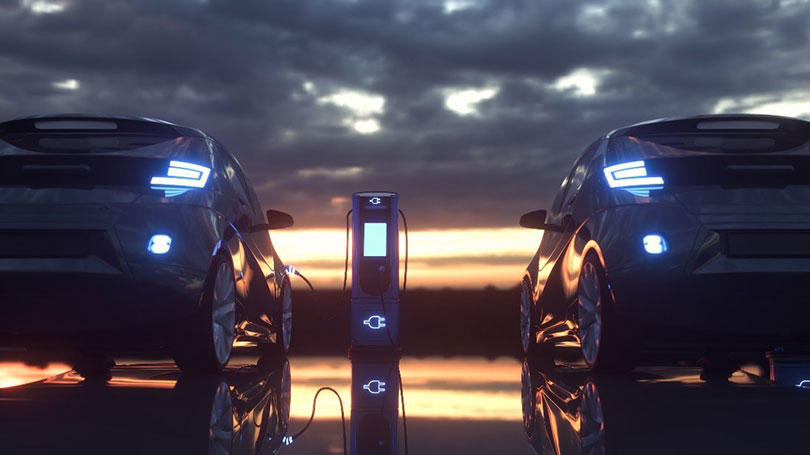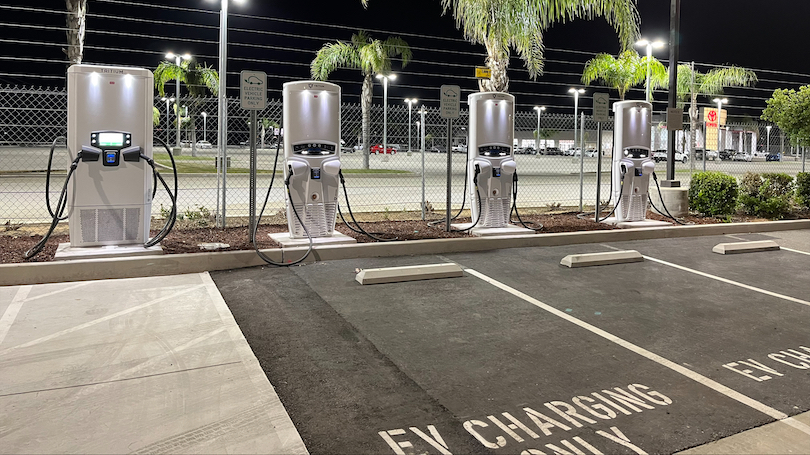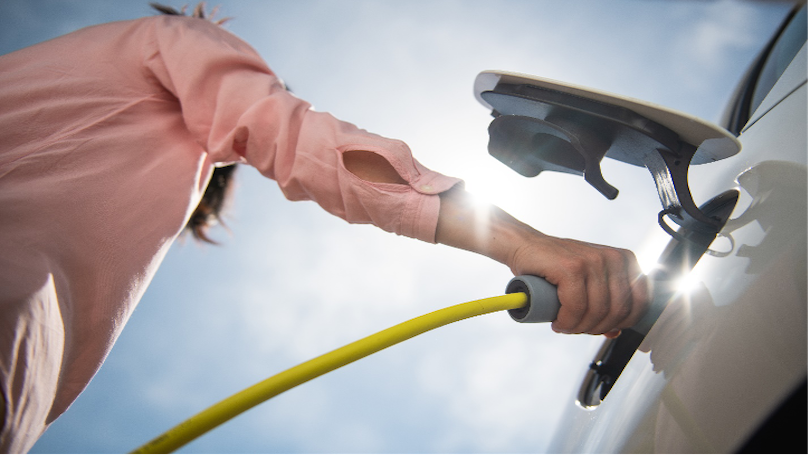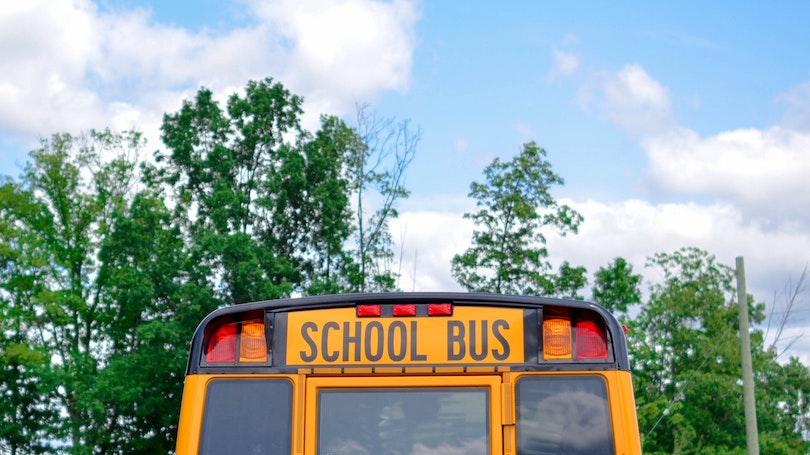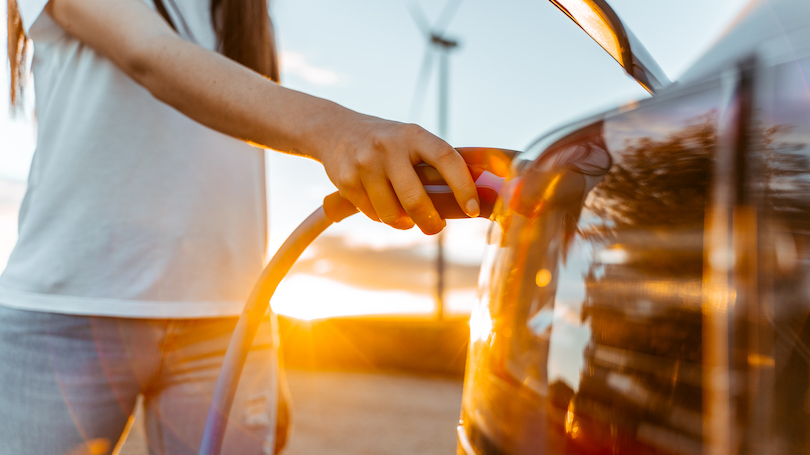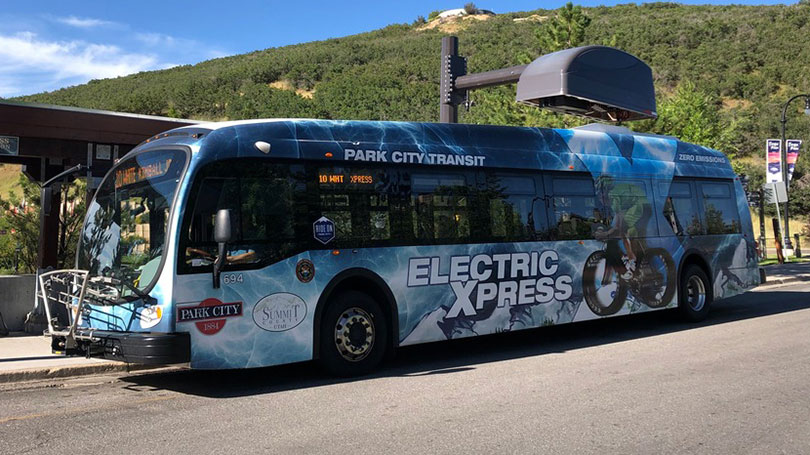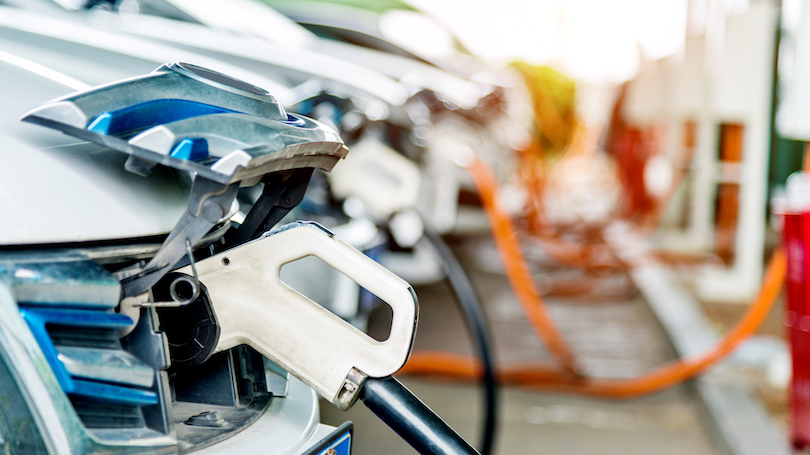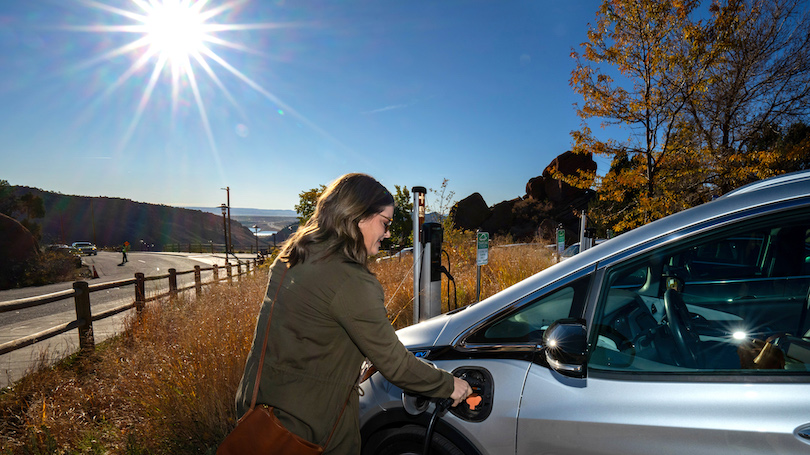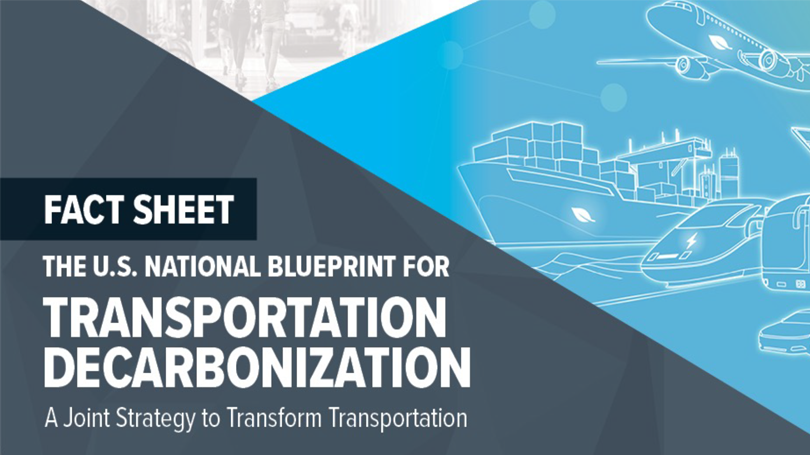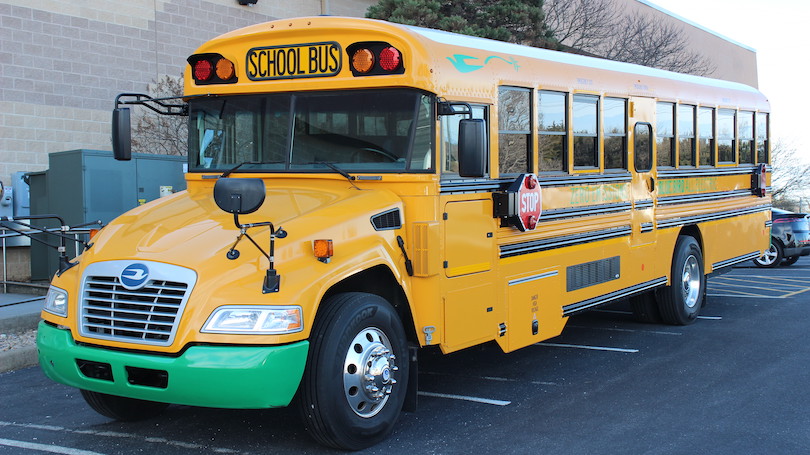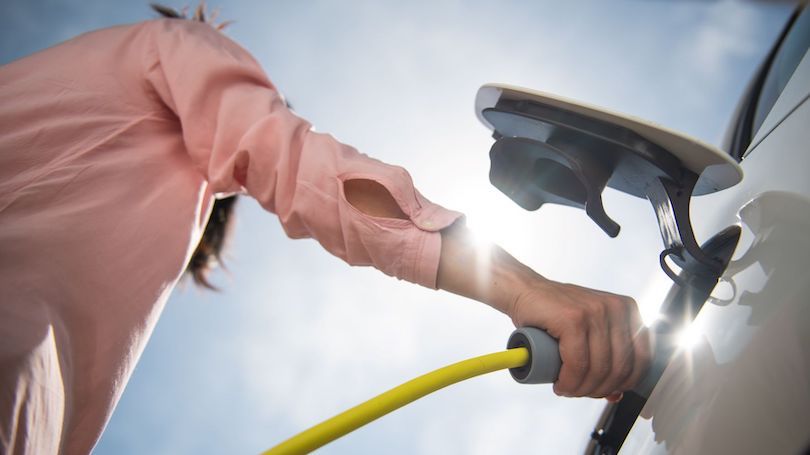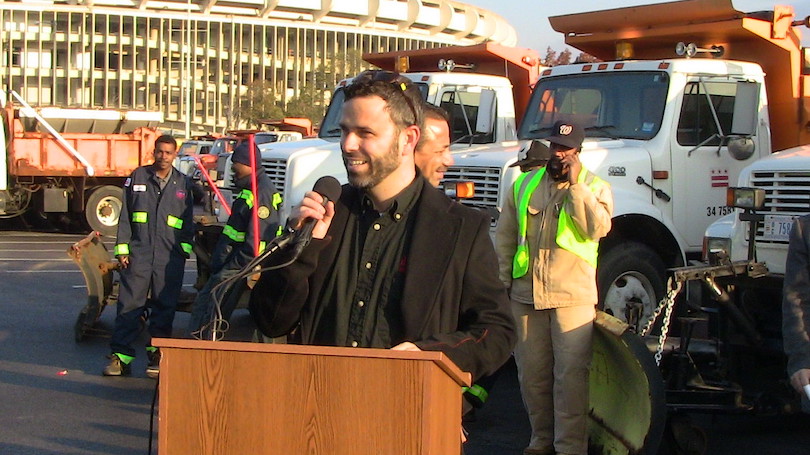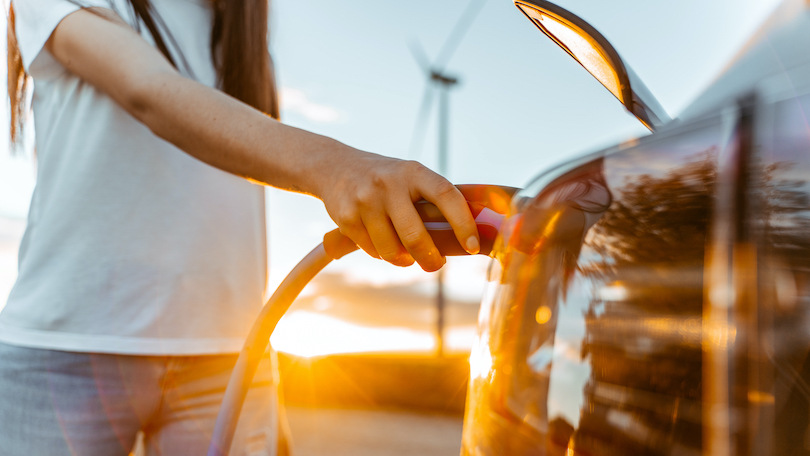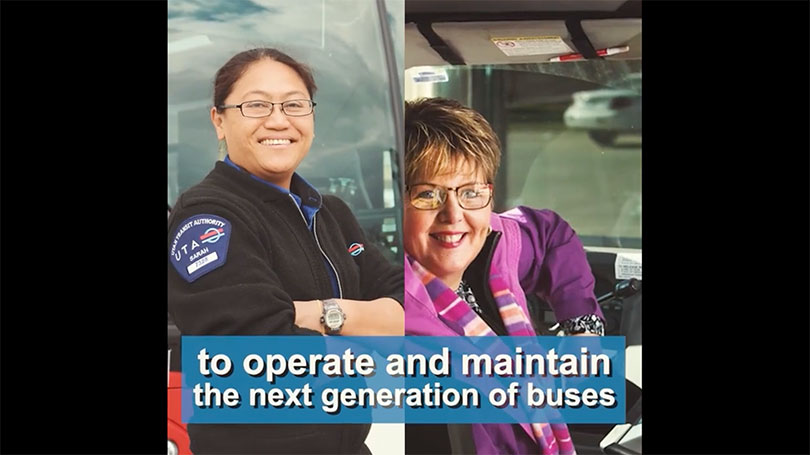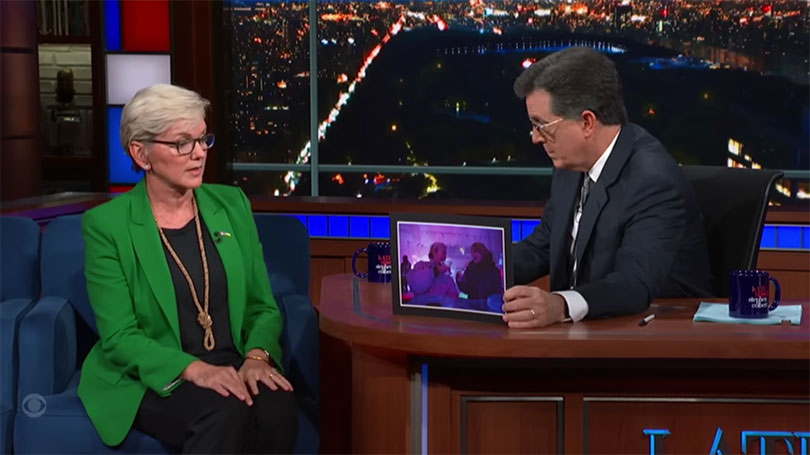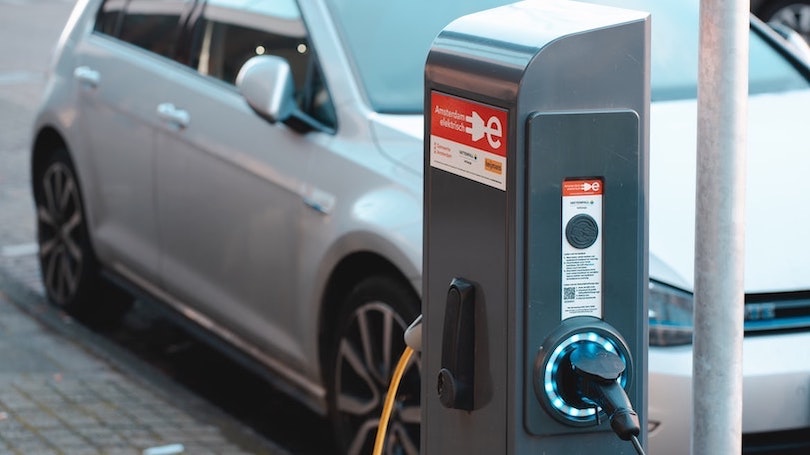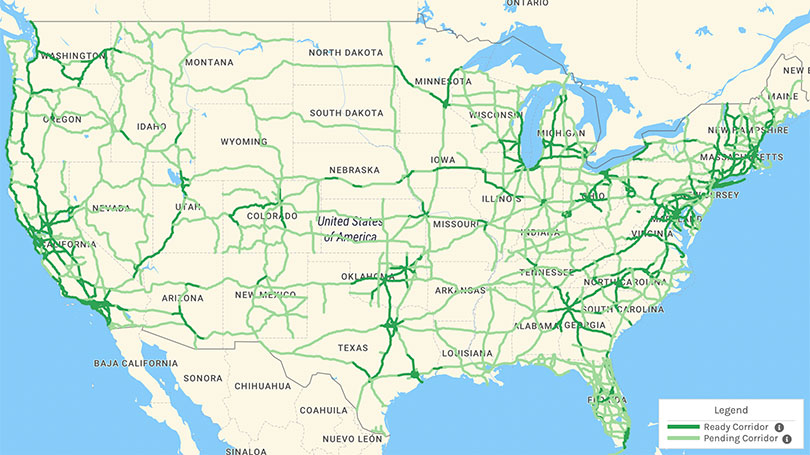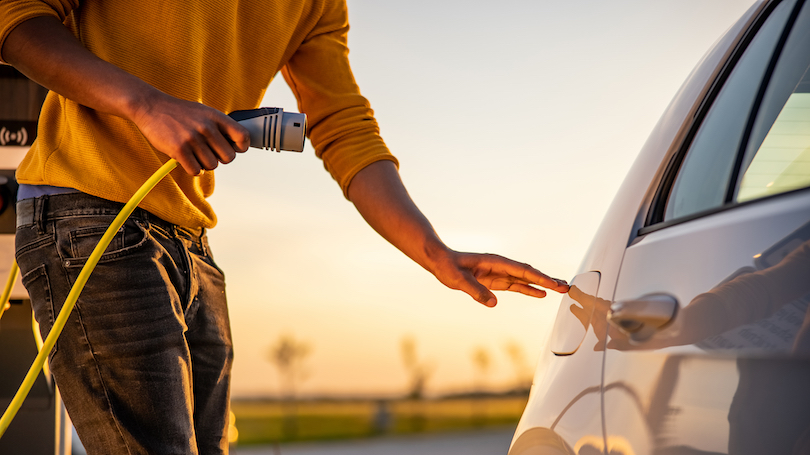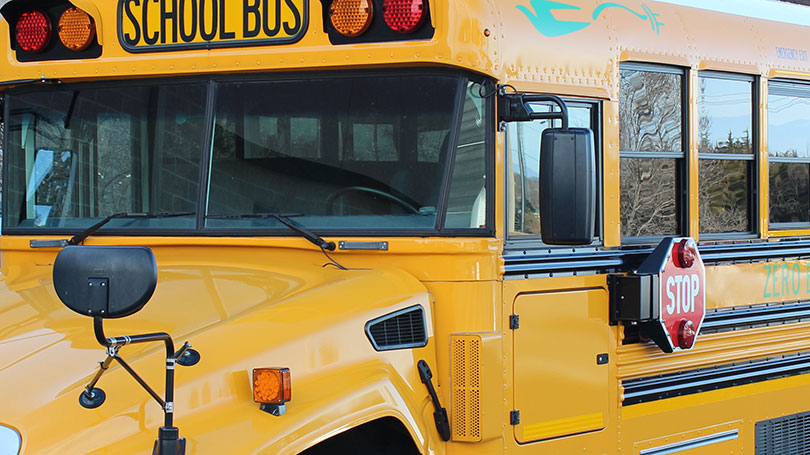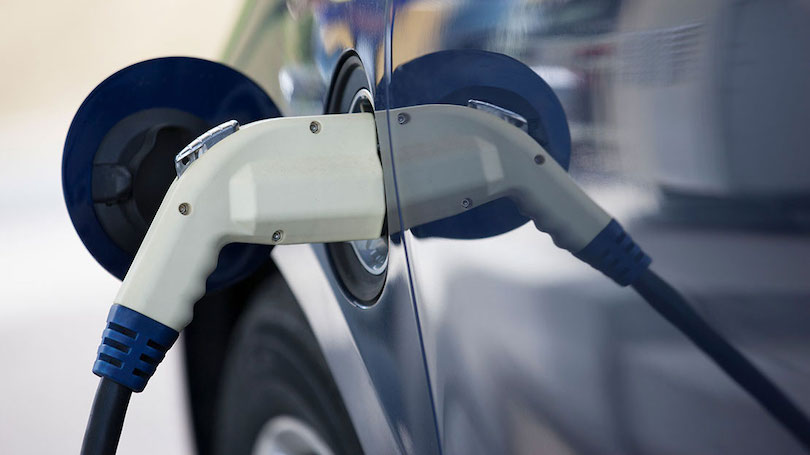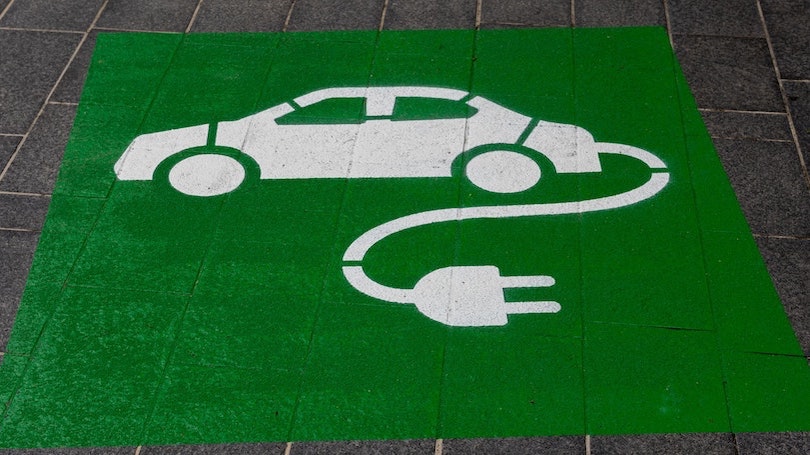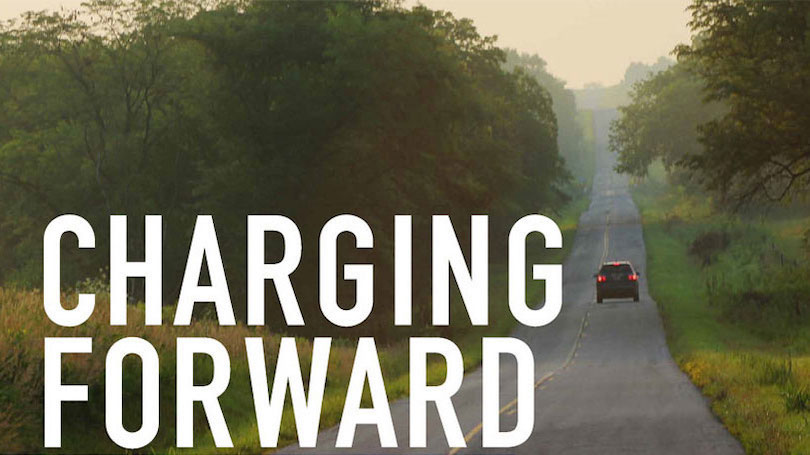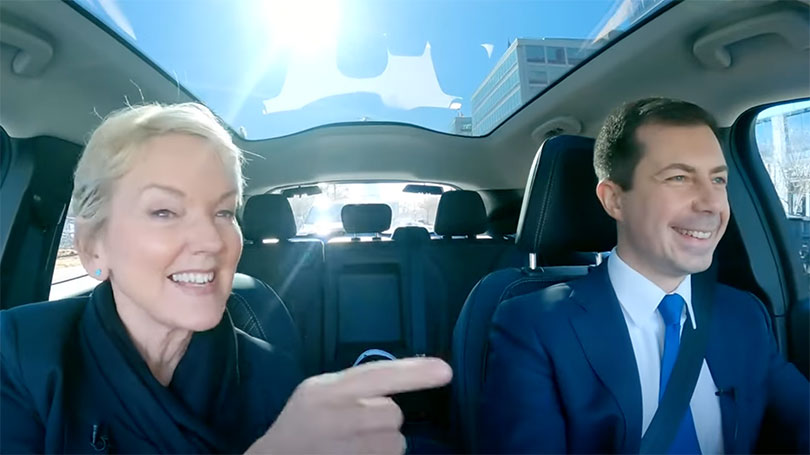News
Find the latest news about the Joint Office of Energy and Transportation as well as updates on technical assistance, data, and tools to help states with deploying electric vehicle charging infrastructure.
-
Rhode Island’s First NEVI-Funded EV Charging Stations Now Open
July 17, 2024
The opening of the first NEVI-funded EV charging stations in Rhode Island makes the state the first in the nation to have its designated alternative fuel corridor certified as a fully built out.
-
Biden-Harris Administration Strengthens Transit Manufacturing Industry
July 9, 2024
This third round of historic federal funding from the Bipartisan Infrastructure Law will help transit agencies serve more riders, reduce air pollution, and train workers on new technologies.
-
First NEVI Funded EV Charging Station Opens in Utah
June 27, 2024
The opening of the first NEVI-funded EV charging station in Utah brings us closer to a future where everyone can choose to ride or drive electric.
-
Behind-the-Meter Generation and Storage Offer Cost- and Energy-Efficient Route to Bus Electrification in New York, Potentially Saving $2 Million Each Year
June 13, 2024
A new Joint Office Case Study demonstrates how Transit Fleets like New York City’s Metropolitan Transit Authority are committed to retiring fossil fuel-powered buses for electric buses.
-
Joint Office of Energy and Transportation and Linux Foundation Energy to Advance Electric Vehicle Charging Interoperability with EVerest Open-Source Platform
June 11, 2024
The Joint Office of Energy and Transportation is sharing the outcome of a new partnership with Linux Foundation on software tools to support communications between EV charging infrastructure and other systems.
-
Biden-Harris Administration Opens Applications for $1.3 Billion in Funding to Continue Expanding National Electric Vehicle Charging Network
May 30, 2024
Funding opportunity from the Bipartisan Infrastructure Law’s electric vehicle charging programs builds on the Biden-Harris Administration’s work to expand EV charging infrastructure in communities nationwide.
-
Q2 2024 NEVI Quarterly Update
May 23, 2024
The National Electric Vehicle Infrastructure (NEVI) Formula Program continues to grow. Learn about the latest EV charging station progress and conditional NEVI awards.
-
States Submit Data to New Joint Office Electric Vehicle Charging Analytics and Reporting Tool
May 7, 2024
A pilot group of EV-ChART users help to refine the tool’s functionality and user experience ahead of widespread use.
-
Find Local Utilities to Support Transportation Electrification with U-Finder Tool
May 6, 2024
Utility Finder (U-Finder) now offered as a web-based tool to help states, communities, and fleets identify active local utility partners.
-
First NEVI Funded Charging Station Opens in Vermont
April 23, 2024
Four new NEVI fast chargers advance Vermont’s efforts to build efficient and convenient public charging across the state.
-
Biden-Harris Administration Invests $54 Million to Expand Clean Transportation Across American Communities
April 16, 2024
The U.S. Joint Office of Energy and Transportation’s Communities Taking Charge Accelerator funding opportunity fosters innovative approaches to equitable EV adoption and charging access.
-
Interactive Playbook Helps Communities Plan for Transportation Electrification
April 4, 2024
Module-based playbook provides actionable resources and tools to help communities plan and deploy electric vehicle (EV) charging infrastructure.
-
First NEVI Funded EV Charging Station Opens in Maine
April 2, 2024
The opening of the first NEVI funded EV charging station in the Pine Tree State brings the state closer to reaching its climate goals for all residents.
-
Biden-Harris Administration, Joint Office of Energy and Transportation Release Strategy to Accelerate Zero-Emission Freight Infrastructure Deployment
March 12, 2024
New strategy aims to fully decarbonize freight movement across the United States by 2040 bringing cleaner air to communities, reducing environmental impact, and boosting the economy.
-
New RFI to Gather Feedback from Consumers, Local Governments on Potential Update to EV Charging Standards.
March 6, 2024
RFI seeks input on how new technologies and innovations can be incorporated into federal standards for EV charging to keep up with consumer and market demand.
-
ChargeX Consortium Addresses Payment Reliability at Public EV Charging Stations
March 5, 2024
New report from ChargeX Consortium shares best practices for solving common payment processing issues at public EV charging stations.
-
First NEVI Funded EV Charging Station Opens in Hawai’i
Feb. 28, 2024
The opening of the first NEVI funded EV charging station in the Aloha State brings us closer to a future where everyone can choose to ride or drive electric.
-
New Resource Helps Create Convenient EV Charging for All Americans
Feb. 26, 2024
A new white paper from the Joint Office helps stakeholders ensure access to electric mobility options for residents in all types of communities, bringing equity to the forefront of the EV revolution.
-
New Program Offers Free Technical Assistance to Develop Bus Fleet Electrification Plans
Feb. 20, 2024
The Clean Bus Planning Awards managed by the National Renewable Energy Laboratory offer access to free technical assistance for customized electrification plans for bus fleets serving all communities.
-
New Tool Helps School Districts Transition to Electric Buses
Feb. 19, 2024
This free technical assistance resource takes the guesswork out of transitioning American school bus fleets to low or no emission options.
-
2024 Q1 NEVI Progress Update
Feb. 16, 2024
The National Electric Vehicle Infrastructure Formula Program is growing rapidly. Learn about the progress made so far this year.
-
$1.5 Billion in Federal Dollars Will Replace Aging Buses, Reduce Pollution, Provide Jobs, and Improve Transit Reliability
Feb. 8, 2024
Applications are open for funding to support national efforts to buy and modernize transit buses, improve facilities, and advance workforce development.
-
New Project Strengthens Reliable EV Charging Infrastructure
Jan. 26, 2024
Open-source software stack paves the way for innovation across EV industry.
-
Pennsylvania Continues Shift Toward Thriving Electric Transportation Sector
Jan. 23, 2024
The opening of Pennsylvania’s first National Electric Vehicle Infrastructure (NEVI) Formula Program- funded electric vehicle charging station ensures a seamless charging experience for drivers.
-
New Funding Enhances EV Charging Resiliency, Reliability, Equity, and Workforce Development
Jan. 19, 2024
Funding from the Biden-Harris Administration supports expanded access to convenient EV charging and grows clean transportation workforce.
-
Nearly $150 Million In Grant Funding Will Bolster Existing U.S. EV Charging Infrastructure
Jan. 18, 2024
New grant funding allows recipients across 20 states to repair and replace EV infrastructure, ensuring a more accessible and reliable network.
-
Biden-Harris Administration Bolsters Electric Vehicle Future With More Than $600 Million in New Funding
Jan. 11, 2024
American communities step boldly into an EV future with the announcement of new funding from the Charging and Fueling Infrastructure Grant Program.
-
EPA Clean School Bus Program Awards Nearly $1 Billion
Jan. 8, 2024
The Biden-Harris Administration announced nearly $1B in awards for clean school buses across the nation through the U.S. EPA Clean School Bus Program Grants Competition.
-
Biden-Harris Administration, U.S. Joint Office of Energy and Transportation Applaud Critical Milestone for SAE J3400 EV Charging Connector Standard
Dec. 19, 2023
U.S. Joint Office Press Release: New open standard will strengthen the foundation for a nationwide EV charging network that is reliable, interoperable, and made in America.
-
New York Continues NEVI Charging Station Momentum
Dec. 15, 2023
The opening of New York’s first National Electric Vehicle Infrastructure (NEVI) Formula Program funded electric vehicle charging station moves the state closer to reaching its ambitious climate goals.
-
ChargeX Consortium Report Aims to Improve the American EV Road Trip Experience
Dec. 14, 2023
ChargeX Consortium releases common error code recommendations to support shared language across EV charging infrastructure and streamline the consumer experience.
-
First Public EV Charging Station Funded by NEVI Open in America
Dec. 13, 2023
As drivers in Ohio charge up at the country’s first operational NEVI charging stations, the Biden Administration’s goal of a reliable, American charging network is coming to fruition.
-
Federal Dollars Continue to Power Clean Energy Evolution
Nov. 16, 2023
The second anniversary of the Bipartisan Infrastructure Law marks dozens of milestones reached and offers a bold vision of America’s clean energy revolution.
-
Keeping the Grid Safe: The Role of Cybersecurity in EV Charging Infrastructure
Nov. 2, 2023
Cyber experts unite to assess cybersecurity practices around EV charging infrastructure, address gaps, and identify opportunities for continued improvement.
-
National Electric Vehicle Infrastructure (NEVI) Progress Update
Oct. 27, 2023
An initial wave of 26 states is leading efforts to build new convenient, reliable electric vehicle (EV) charging stations under the National Electric Vehicle Infrastructure (NEVI) Formula Program.
-
FHWA Announces Round 7 Alternative Fuel Corridor Designations
Oct. 19, 2023
FHWA Round 7 Alternative Corridor Designations to provide expanded alternative fuel coverage across the U.S.
-
EPA Clean School Bus Rebate Program Offers $500 Million in Funding
Sept. 29, 2023
The U.S. Environmental Protection Agency (EPA) announced it has opened the 2023 Clean School Bus (CSB) Rebate Program which offers at least $500 million in rebate funding.
-
DOT Accelerating EV Charging Project Delivery
Sept. 20, 2023
The U.S. Department of Transportation is accelerating the installation of EV charging stations by adopting a U.S. Department of Energy EV Charging Station Categorical Exclusion under the National Environmental Policy Act.
-
Joint Office Supports Charging Standardization to Enhance EV Charging Experience
Sept. 14, 2023
Interview with Joint Office Executive Director Gabe Klein on the development of open charging standards for Tesla’s electric vehicle (EV) North American Charging Standard (NACS).
-
Biden-Harris Administration to Invest $100 Million for EV Charger Reliability
Sept. 13, 2023
Biden-Harris administration announces opening of applications for the Electric Vehicle (EV) Charger Reliability and Accessibility Accelerator program which will provide up to $100 million in federal funding.
-
Joint Office Offers New Cybersecurity Resource
Aug. 29, 2023
Sample procurement language incorporating cybersecurity best practices for electric vehicle supply equipment (EVSE) to help stake holders build cybersecurity into all stages of the life cycle.
-
Joint Office Announces Electric Vehicle Working Group Members
Aug. 3, 2023
The Electric Vehicle Working Group (EVWG) is a national committee of experts who will help guide federal electric vehicle (EV) efforts.
-
DOE National Lab and J.D Power Partner to Better Understand EV Market and Charging Infrastructure
July 28, 2023
DOE's Argonne National Laboratory announced that it is partnering with J.D. Power to inform the development of more accessible and reliable charging networks.
-
Joint Office Funding Opportunity Deadline for Full Applications Extended
July 20, 2023
The deadline for full applications has been extended to Aug. 25, 2023 at 5 p.m. ET.
-
States Award NEVI Charging Station Contracts
July 18, 2023
Hawaii and Ohio are the first states to make significant announcements to put electric vehicle (EV) charging stations into the ground.
-
DOT Releases New Edition of EV Toolkit for Urban Areas
July 12, 2023
The U.S. Department of Transportation, in collaboration with the U.S. Department of Energy and the Joint Office, released a guide that provides a comprehensive resource to help urban areas implement electric transportation.
-
Joint Office Releases NEVI Formula Program Annual Report
July 11, 2023
The report summarizes Joint Office key activities in relation to the NEVI Formula Program and provides an overview of initial state EV infrastructure deployment plans.
-
The Joint Office Welcomes New Program Staff
July 10, 2023
The Joint Office welcomed three additional team members with significant expertise and experience in charging policy to help advance the Joint Office's mission.
-
New Analysis Guides Development of National Charging Network
June 27, 2023
The new report will serve as a strategic framework for the development of nationwide electric vehicle charging infrastructure designed to meet the needs of an anticipated 30–42 million light-duty EVs by 2030.
-
The Joint Office Welcomes New Program Staff
June 14, 2023
The Joint Office of Energy and Transportation (Joint Office) welcomed five new team members to the staff with significant expertise in charging policy to advance the Joint Office mission of accelerating an electrified transportation system that is affordable, convenient, equitable, reliable, and safe.
-
FHWA Releases Updated NEVI Formula Program Guidance and Requests AFC Round 7 Nominations
June 8, 2023
The Federal Highway Administration (FHWA) has updated its National Electric Vehicle Infrastructure (NEVI) Formula Program guidance and released its Alternative Fuel Corridors (AFC) Round 7 designation request for nominations.
-
Joint Office Announces National Charging Experience Consortium
May 18, 2023
ChargeX Consortium takes collaborative approach to improving the EV charging experience.
-
Biden-Harris Admin Announces $51M to Build Future for All Americans to Ride and Drive Electric
May 18, 2023
Biden-Harris Admin Announces $51M to Build Future for All Americans to Ride and Drive Electric
-
EPA Announces $400 Million Grant Program to Fund Clean School Buses
April 24, 2023
Latest funding from the President’s Investing in America agenda will reduce emissions and protect children’s health.
-
Biden-Harris Admin Opens First Round Applications for $2.5 Billion Program to Build EV Charging in U.S. Communities
March 14, 2023
First round of funding under Bipartisan Infrastructure Law’s Charging and Fueling Infrastructure program to help ensure America’s zero-emission vehicle future is accessible and equitable.
-
DOT FTA Announces $1.7B to Modernize Transit Fleets with Low- and No-Emission Buses
Feb. 20, 2023
The Joint Office provides technical assistance to help state and local efforts to modernize their transit fleets to low- and no-emission vehicles.
-
Private Sector Continues to Play Key Part in Accelerating Buildout of EV Charging Networks
Feb. 15, 2023
Actions taken by the federal government serve as a catalyst for private investment in domestic EV charging.
-
Biden-Harris Administration Announces Next Steps for Building a National Network of EV Charging
Feb. 15, 2023
Today the Biden-Harris administration announced actions that will empower states to take next steps toward building a national network of EV charging that is convenient, accessible, and equitable.
-
Joint Office Releases Notice of Intent for Funding Opportunity and Department of Energy Announces EV Charging and Hydrogen Corridor Project Funding
Feb. 15, 2023
The Joint Office released a notice of intent to issue a funding opportunity for its Ride and Drive Electric research and development program.
-
Biden-Harris Admin Releases Blueprint to Decarbonize U.S. Transportation Sector
Jan. 24, 2023
The U.S. National Blueprint for Transportation Decarbonization is a landmark strategy for cutting all greenhouse gas emissions from the transportation sector by 2050.
-
DriveElectric.gov Provides Technical Assistance for School Districts, Transit Agencies, and Tribal Nations
Nov. 30, 2022
The Joint Office of Energy and Transportation recently updated its website to include additional technical assistance resources and information for those interested in supporting an electric vehicle future.
-
EPA’s Clean School Bus Program Awards Nearly $1 Billion
Oct. 27, 2022
The Biden-Harris Administration announced recipients of the EPA’s Clean School Bus Program rebate competition, awarding nearly $1 billion to 389 school districts.
-
All 50 States Plus D.C. and Puerto Rico Move EV Charging Networks Forward
Sept. 27, 2022
The Biden-Harris administration today announced it has approved Electric Vehicle Infrastructure Deployment Plans for all 50 states, Washington, D.C., and Puerto Rico ahead of schedule under the National Electric Vehicle Infrastructure Formula Program.
-
DOE and DOT Announced Gabe Klein as Executive Director for the Joint Office of Energy and Transportation
Sept. 20, 2022
The U.S. Departments of Energy and Transportation today announced that Gabe Klein will lead the Joint Office of Energy and Transportation, which was created by the President's Bipartisan Infrastructure Law
-
First 35 State Plans Approved to Build Out EV Charging Infrastructure
Sept. 14, 2022
The Biden-Harris Administration announced today that more than two-thirds of electric vehicle (EV) infrastructure deployment plans have been approved ahead of schedule under the National Electric Vehicle Infrastructure (NEVI) Formula Program.
-
Over $1.6 Billion in BIL Funding to Nearly Double the Number of Clean Transit Buses in America
Aug. 29, 2022
The U.S. Department of Transportation announced $1.66 billion in grants to transit agencies, territories, and states across the country to invest in 150 bus fleets and facilities.
-
DOT Announces All States Have Submitted NEVI Plans
Aug. 2, 2022
All 50 states, the District of Columbia, and Puerto Rico have submitted EV infrastructure deployment plans required under the National Electric Vehicle Infrastructure (NEVI) Formula Program.
-
Joint Office Funds EV Charging Collaboration with NASEO and AASHTO
July 20, 2022
The Joint Office awarded $1.5 million to enhance coordination between state energy offices and state departments of transportation on creating a national network of electric vehicle charging.
-
DOT Announces 6th Round of Alternative Fuel Corridor Designations
July 6, 2022
The U.S. Department of Transportation (DOT) announced the sixth round of Alternative Fuel Corridor designations, which now include all 50 states, Washington, D.C., and Puerto Rico.
-
Electric Vehicle Working Group Established
June 9, 2022
A new Electric Vehicle Working Group, established June 8, 2022, will be a key advisory body to make recommendations regarding the development, adoption, and integration of light-, medium-, and heavy-duty electric vehicles.
-
New NEVI Formula Program Information Available
June 9, 2022
The Federal Highway Administration (FHWA) announced proposed minimum standards and requirements for projects funded under the National Electric Vehicle Infrastructure (NEVI) Formula Program.
-
EPA Announces Clean School Bus Funding
May 20, 2022
The first round of funding for the Environmental Protection Agency's (EPA) Clean School Bus Program is now available.
-
Joint Office Signs MOU with AASHTO and NASEO
March 1, 2022
A newly signed memorandum of understanding will enhance coordination between state energy offices and state departments of transportation.
-
DOT Issues Guidance for States
Feb. 10, 2022
The U.S. Department of Transportation (DOT) released guidance for state departments of transportation related to implementation of the National Electric Vehicle Infrastructure (NEVI) Formula Program.
-
DOT Releases Rural EV Toolkit
Feb. 2, 2022
The U.S. Department of Transportation released a new, free resource to help rural communities across the country take full advantage of federal funding for electric vehicle (EV) charging stations.
-
Memorandum of Understanding Creates Joint Office
Dec. 14, 2021
U.S. Secretary of Energy Jennifer M. Granholm and U.S. Secretary of Transportation Pete Buttigieg signed a memorandum of understanding to create the Joint Office of Energy and Transportation.











